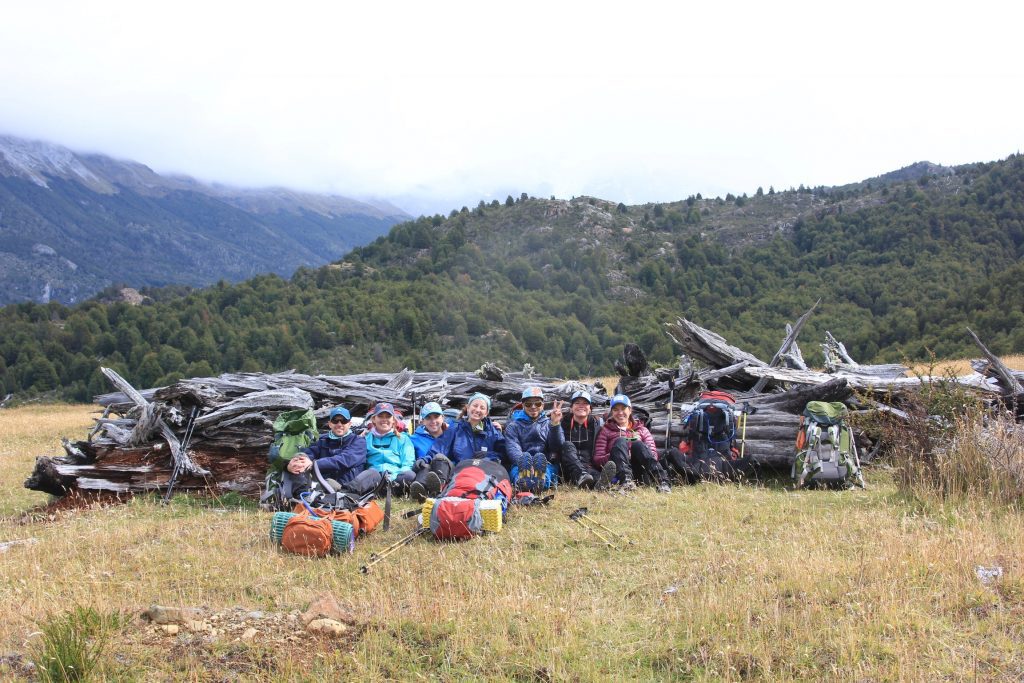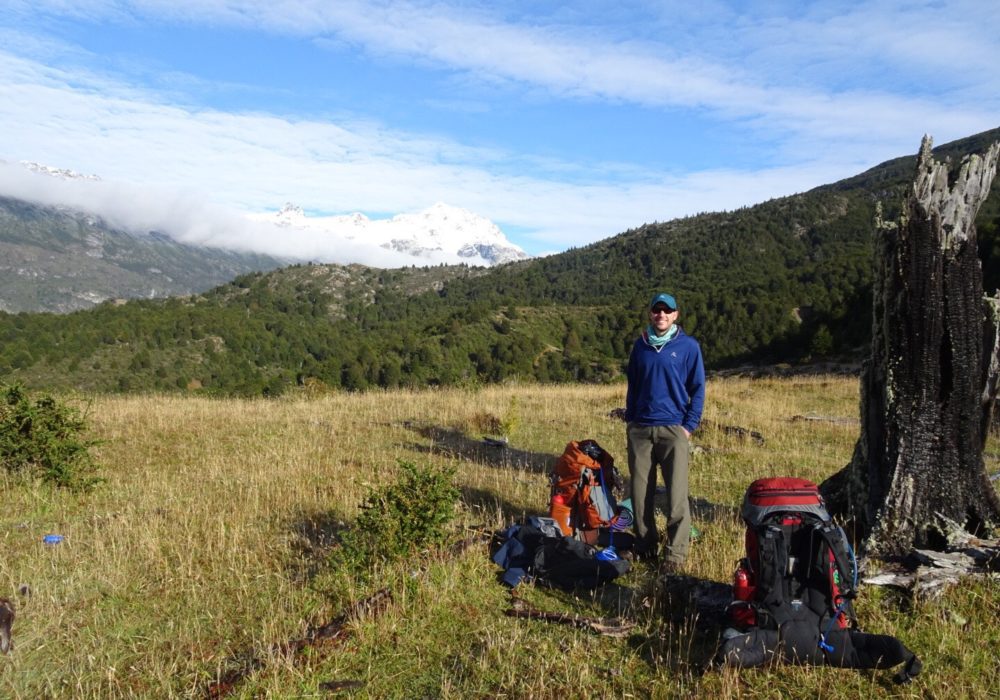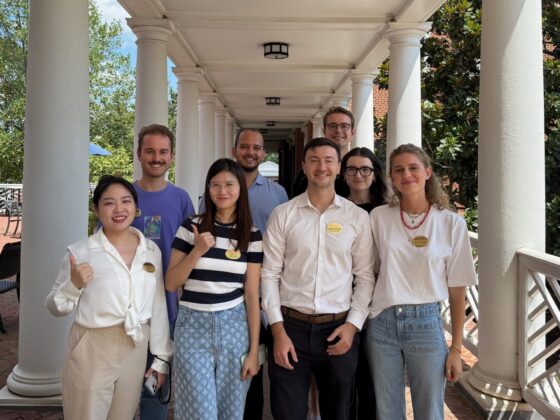‘Patagonia!’ he cried. ‘She is a hard mistress. She casts her spell. An enchantress! She folds you in her arms and never lets go.’
-The Maestro
As an avid outdoorsman, I always fanaticized about travelling to Patagonia; to see the snowcapped peaks, rushing rivers, and glacial lakes; to meet the “enchantress” as described in Bruce Chatwin’s classic, In Patagonia. Needless to say, I was thrilled for a chance to visit such an exciting destination but going on an adventure was not my only intention.
I was there, along with eleven of my Darden classmates, to study leadership with the National Outdoor Leadership School, otherwise known as NOLS. We embarked on a multiday expedition in the Patagonia backcountry to refine our leadership skills in a harsh and unpredictable environment. We climbed our way up the Rio Norte Valley, over a snowy mountain pass, and back down through densely wooded forest, all the while practicing how to lead, to follow, and to learn from one another. As our trip came to a close, I reflected on the experience and how I can be a better leader in the future. While there are many things I could write about, two key takeaways stood out for me:
The Importance of Taking Care of Yourself
NOLS begins every expedition with a lesson on rationing, during which instructors stress the importance of eating and hydrating to ensure that your body has the energy it needs throughout the long hikes and cold nights. It seems simple enough, but this is an easy rule to forget. For example, towards the end of a long day of hiking when I was the designated leader for our group, we ran into several unforeseen obstacles that required scouting parties to search for information about our location. As the designated leader, I was so focused on making good decisions that I participated in the scouting efforts and ignored my body’s signals to eat and hydrate. As a result, I quickly pushed myself to the point of exhaustion and could feel myself hit a wall where my decision-making ability rapidly deteriorated and I struggled to be an effective leader.
This experience reminded me of a lesson from Professor Belmi’s Path’s to Power class. Leaders are expected to be the same person at the end of the day as they are at the beginning and I realized that evening in Patagonia just how hard it can be. In the workplace setting, it is easy to disguise the effects of physical and mental exhaustion with a quick coffee break or trip to the snack machine, but, in a remote wilderness setting, it is not so easy to bounce back and the effects can be debilitating. In retrospect, I needed to take a step back from the situation, realize my own fatigue, and delegate responsibilities among my team rather than pushing myself beyond my limits. Doing so would have given me a chance to refuel and ensure that I was fit to continuing leading at my best late into the evening.
The Importance of Doing Things Right the First Time
My second takeaway occurred while setting up camp at the top of a mountain pass. We were camping in a glacier moraine and needed to find rocks to anchor our tent. Felipe, our NOLS instructor, kept telling us that we needed bigger rocks and would extend his arms as wide as possible to show us what he meant, but we failed to listen. As if the mountain was trying to teach us a lesson, a HUGE gust of wind picked up our tent and dragged the rocks we had chosen across the mountain top. We instantly saw the error in our ways and quickly refortified all of the tents.
This is a simple example, but it highlights an important learning. Because we didn’t listen to the expert and anchor our tents the right way, we experienced the physical consequence of having to go back and redo our work. In an environment where resources are already limited – we were exhausted from a long day of hiking, it was getting late, and a rainstorm was picking up – the time and energy spent correcting this mistake made our evening tasks that much harder to complete. But, as Felipe pointed out, the mental consequences that set in when you don’t complete a task the right way are often overlooked. You put yourself in a position where you worry about whether it will hold and wonder if you should go back and do it a better way, both of which use up mental capacity and further drain you of energy. As I reflect on this, I can think of countless times where I cut a corner or chose to ignore a piece of feedback, while completing a task, and hoped that it didn’t cause problems later. Instead, I need to recognize that the festering doubt and rework will ultimately use up more energy than if I just do it right the first time.
In Conclusion
For me, this trip solidified the importance of outdoor education. Patagonia is a very unpredictable and remote wilderness environment, where the hazards and risks can change in a moment’s notice. As a leader, you are challenged to make good decisions that will affect your entire team in very real and tangible ways. The great thing about NOLS is that you have wonderful instructors (be careful to not call them guides) and teammates to support you the entire way. There are ample opportunities to learn, to give and receive feedback, and to improve your ability to make decisions under conditions of uncertainty. It forces you to develop a mindset of seeking data and advice from those around you, a powerful lesson for anyone starting their post-MBA career.
Despite the challenges I’ve described, it was an incredibly fun and memorable trip. Rarely do you have the opportunity to completely disconnect from day-to-day responsibilities and experience such a remote part of the world like this. It was a chance to bond with classmates while learning how to cook gourmet dinners on a backpacking stove, and work together with complete focus and determination towards the common goal of making it to our destination. This adventure was one of my most memorable experiences at Darden and I expect the twelve of us who participated to remain close long after graduation.






